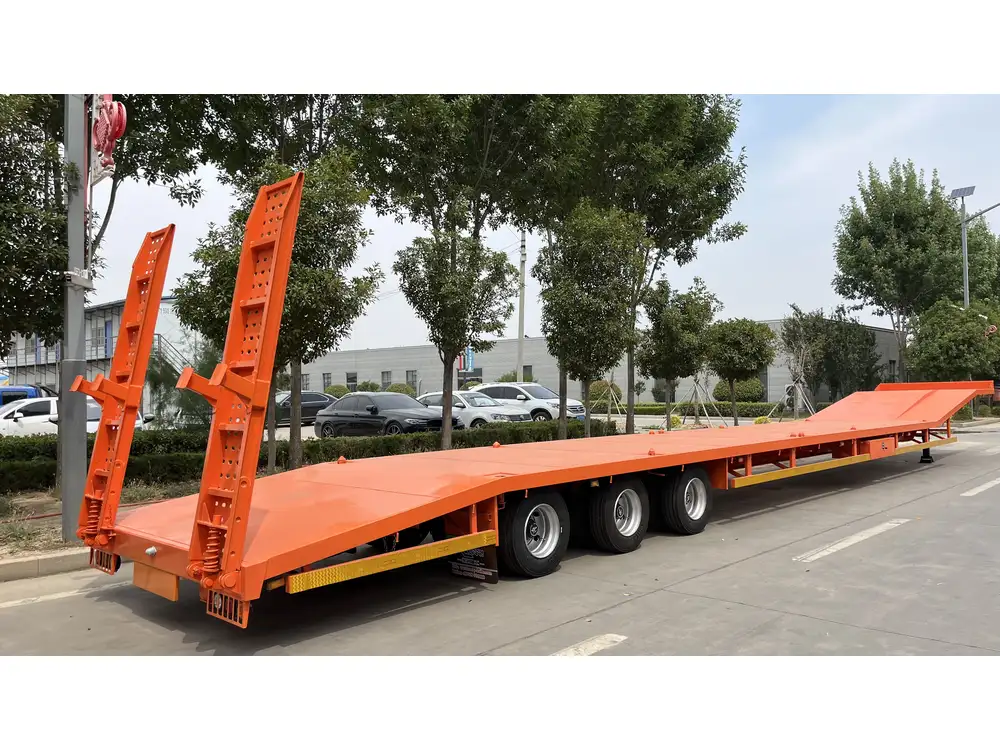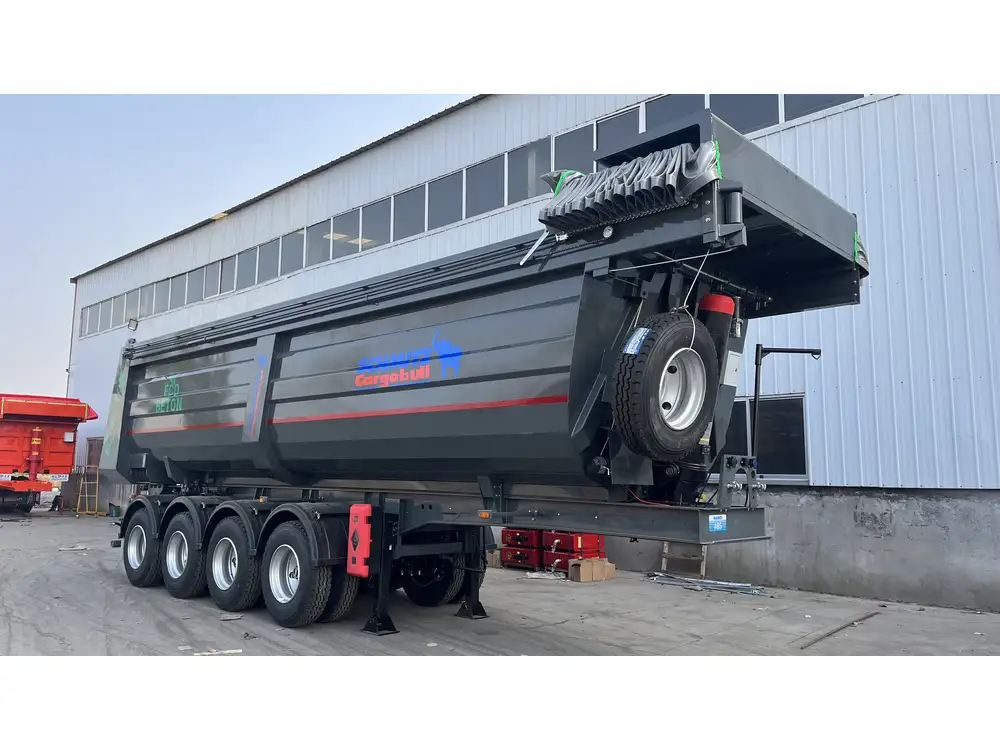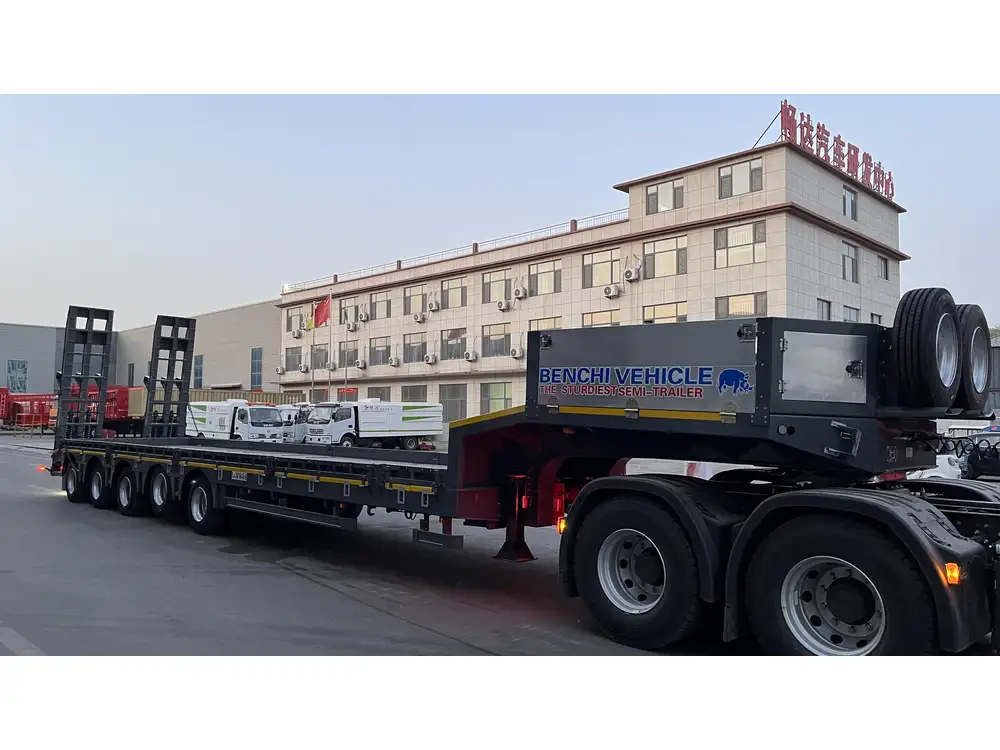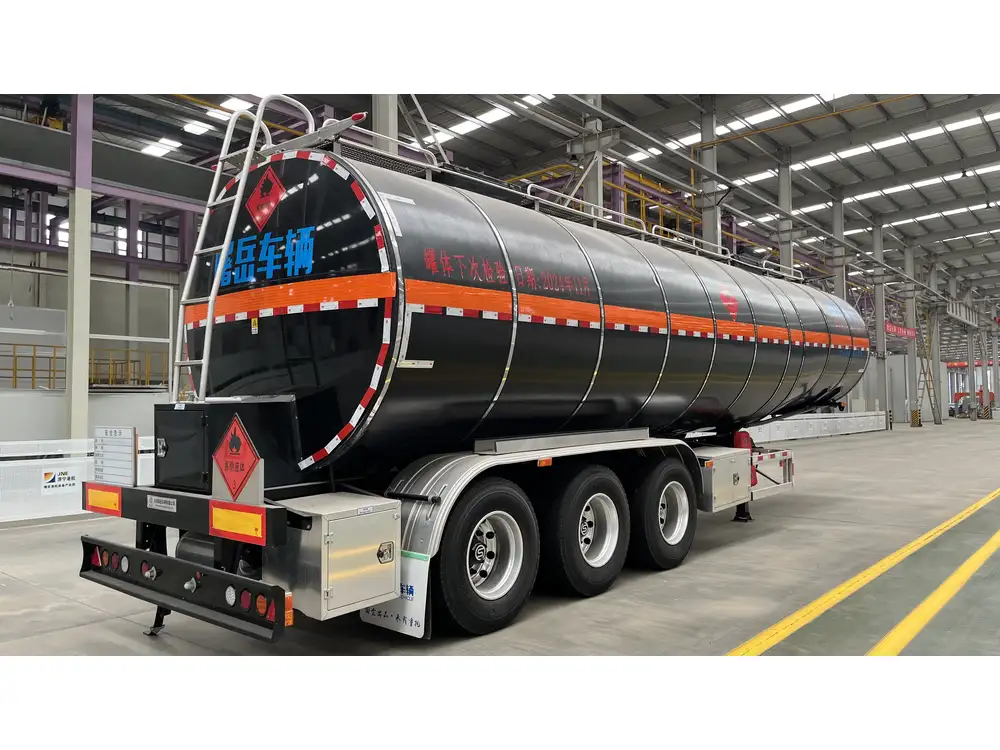When it comes to transporting vehicles, understanding the dimensions of car trailers is crucial. Whether you’re a manufacturer, dealer, or individual looking to purchase a trailer for transportation, knowing the specifics of trailer width can help you make informed decisions. This article dives deep into the various sizes and types of car trailers, how wide they typically are, what factors affect their design, and key considerations to keep in mind when choosing the right trailer for your needs.
The Standard Widths of Car Trailers
Car trailers come in various sizes to accommodate different types of vehicles. Standard widths vary, but most car trailers fall within the following range:
| Trailer Type | Standard Width (inches) | Notes |
|---|---|---|
| Single Axle Trailers | 78 – 102 | Designed for lighter vehicles. |
| Tandem Axle Trailers | 80 – 96 | Suitable for heavier vehicles. |
| Enclosed Trailers | 92 – 102 | Provides protection from weather and theft. |
| Utility Trailers | 72 – 84 | Versatile for both vehicle transport and cargo. |
Single Axle Trailers
Single axle trailers generally have widths ranging from 78 to 102 inches. These trailers are commonly used for lighter vehicles such as compact cars, motorcycles, or ATVs. The narrower design aids in maneuverability, especially in tight spaces.

Tandem Axle Trailers
For larger vehicles, tandem axle trailers offer a wider platform, typically between 80 to 96 inches. The dual-axle design provides enhanced stability and allows for the transport of heavier cars, SUVs, and trucks. Additionally, the increased width ensures a better distribution of weight, which is crucial for safety during transit.
Enclosed Trailers
Enclosed car trailers, perfect for high-value or specialty vehicles, have widths that usually range from 92 to 102 inches. Not only do they protect your vehicle from road debris and inclement weather, but they also provide added security against theft. This type of trailer is particularly popular among car shows and collectors who wish to transport their vehicles safely.
Utility Trailers
Utility trailers, versatile by design, typically have widths ranging from 72 to 84 inches. These are ideal for various uses beyond just car transport, allowing you to haul lawn equipment, furniture, and other items. If your vehicle’s transport doesn’t require specialized care, a utility trailer might be an excellent economical choice.

Factors Influencing Trailer Width Selection
Several factors come into play when determining the width of a car trailer, each tailored to meet specific needs:
Vehicle Type: The vehicle’s dimensions guide what type of trailer to choose. Sports cars versus pickup trucks necessitate different trailer specifications.
Local Regulations: Depending on the jurisdiction, laws may dictate the legal maximum width for road transport. Generally, the legal width is 102 inches in most states.
Load Capacity: Wider trailers can carry more weight, which may be essential for transporting larger vehicles or multiple cars.
Maneuverability: If you’re frequently navigating urban areas or narrow backroads, a narrower trailer may be more suitable.
Accessories and Features: Trailers designed with additional features like ramps, side doors, or tie-down points may vary in width as these aspects factor into the overall design.
Potential Problems and Considerations
Choosing the right width of a car trailer is vital; however, several common issues can arise:
Issue 1: Overloading and Stability
One of the main concerns when operating a trailer is overloading. Exceeding the manufacturer’s recommended weight limit can lead to trailer instability and an increased risk of accidents. Always ensure the total weight of the load doesn’t surpass the designated limit.

Issue 2: Compatibility with Towing Vehicles
Not all vehicles possess the same towing capacity. Before finalizing your trailer width, ensure that your towing vehicle can handle the weight and length of the trailer and cargo. Consult your vehicle’s manual or a professional to confirm compatibility.
Issue 3: Licensing and Insurance
Depending on your location, different licensing requirements pertain to trailers of various sizes. Furthermore, insurance policies may have specific guidelines that impact coverage for trailers exceeding a predetermined width. It’s crucial to research these aspects before making a purchase.
Issue 4: Parking and Storage
A wider trailer can pose issues regarding parking and storage. Verify that you have adequate space at home or your business for the trailer. Striking a balance between a trailer’s usefulness and your storage capabilities is essential.

Additional Considerations for Car Trailer Purchases
Customization Options
If standard widths do not meet your needs, consider customization. Many manufacturers offer tailored solutions regarding the width and design features. Ensure you communicate your requirements well to obtain the best outcome.
Manufacturer Reputation and Quality
When purchasing a car trailer, do thorough research on manufacturers. Look for reviews, warranties, and testimonials. A reputable manufacturer will provide durable trailers designed for safety and usability.

Safety Features
Never compromise on safety features when selecting your car trailer. From brake systems to tie-down points, ensure that the trailer is equipped to handle your transportation needs securely. Look for features such as:
- LED Lighting for visibility during low-light conditions.
- Secure Tie-Down Systems to prevent vehicle movement during transit.
- Braking Systems, particularly for heavier trailers.
Measuring Your Vehicle for Trailer Compatibility
Accurate measurements are vital for ensuring compatibility between your vehicle and the trailer. Here’s a concise guide on how to measure effectively:
Dimensions of the Vehicle:
- Measure the length from the front bumper to the rear bumper.
- Measure the width, including any mirrors or additional protrusions.
- Record the height, especially if transporting through areas with height restrictions.
Weight:
- Weigh your vehicle using a certified scale, and consider how this weight impacts the total trailer load.
Turn Radius:
- Consider how tight spaces may affect your vehicle during loading and unloading.
Practical Example of Measuring
| Measurement | Vehicle A (Sedan) | Vehicle B (SUV) | Vehicle C (Truck) |
|---|---|---|---|
| Length (inches) | 180 | 192 | 210 |
| Width (inches) | 70 | 75 | 80 |
| Height (inches) | 55 | 62 | 70 |
| Weight (lbs) | 3,000 | 4,000 | 5,500 |

Conclusion: The Importance of Width in Car Trailers
Understanding the width of car trailers is not merely about dimensions; it encapsulates a range of considerations that impacts safety, efficiency, and compatibility. From the diversity in sizes—be it single axle, tandem, or enclosed trailers—to the various influencing factors like vehicle type and local regulations, each aspect plays a significant role in your car transport strategy.
Being informed about these elements enables manufacturers, dealerships, and individual buyers to make choices that fulfill their transportation needs while adhering to safety standards and regulations. Purchasing the right car trailer necessitates careful planning, consideration of the vehicle’s dimensions, and awareness of logistical constraints.
As a manufacturer of semi-trailers, we prioritize quality, safety, and customer satisfaction in every aspect of our trailer designs. By understanding your transport requirements and evaluating the crucial wide ranges outlined in this guide, you can ensure you select the optimal car trailer to suit your needs, ultimately leading to a more efficient and enjoyable transport experience.



